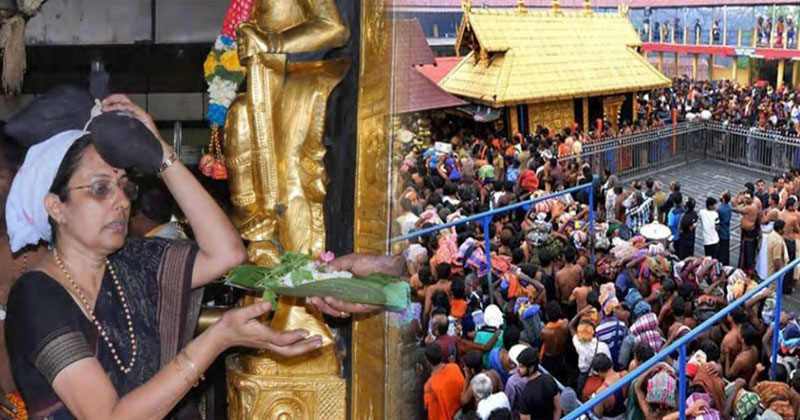
On Friday, the Supreme Court had announced its historic verdict on the Sabarimala case.
The Apex Court has lifted the ban in the Sabarimala temple that banned females from the ages 10-50 on the grounds of menstruation.
The five-judge constitution bench headed by Chief Justice Dipak Misra gave a 4:1 verdict. In four sets of judgements, CJI wrote for himself and Justice A M Khanwilkar, while Justice Indu Malhotra gave a dissenting verdict.
CJI Dipak Misra’s judgment read out as: “Women no way inferior to men. On one hand, women are worshipped as Goddesses, but there are restrictions on the other hand. Relationship with God can’t be defined by biological or physiological factors. Banning the entry of women to shrine is gender discrimination. “Practice of exclusion of women of 10-50 age group cannot be regarded as essential religious practice.
Devotion cannot be subjected to discrimination. The patriarchal notion cannot be allowed to trump equality in devotion. Religion is a way of life basically to link life with divinity. Sabarimala Temple practice violates the rights of Hindu women. Devotees of Lord Ayyappa do not constitute separate denomination.
However, Justice Indu Malhotra said, “Issues which have deep religious connotation should not be tinkered with to maintain a secular atmosphere in the country.”
“Equality doctrine cannot override fundamental right to worship under Article 25,” Justice Malhotra said. She added that Lord Ayyappa devotees form a separate religious denomination worthy of protection.
“India has diverse religious practices and constitutional morality would allow anyone to profess a religion they believe”Justice Malhotra has said. Notions of rationality cannot be brought into matters of religion, she added.
Reacting to the landmark verdict, A. Padma Kumar, Kerala Devaswom Board president said that the Board will file a review petition in the case.
Akhila Bharatiya Ayyappa Seva Sangham, a body of the Ayyappa devotees across the country, which opposed women’s entry into Sabarimala said that they will explore the possibility of filing a review petition against the verdict
During the hearings, the Travancore Devaswom Board which runs the over 800-year-old Lord Ayyappa temple had told the court that the ban is not anti-women and is voluntarily accepted by them. But the top court underlined that the all customary or religious practices such as a ban on entry of women had to conform to constitutional principles.
The board had also urged the top court to steer clear of sitting in judgment on sensitive religious matters.

Post Your Comments